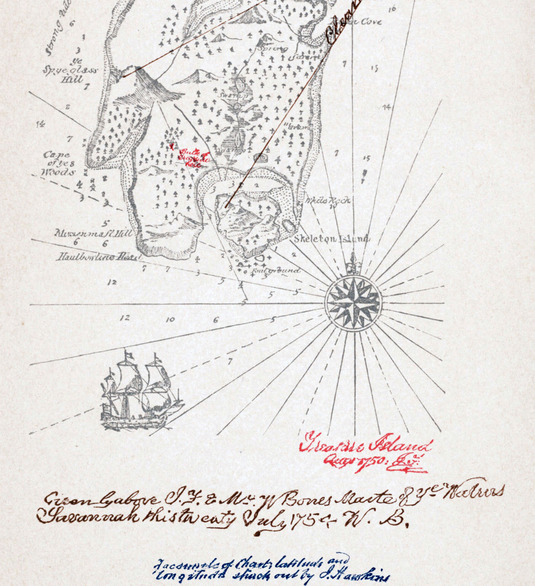Transforming Victorian Adventure Writing: Modernist Urban Fiction and Postcolonial Rewritings
English Studies, LMU Munich
Principal Investigator: Prof. Dr. Tobias Döring
Postdoctoral researcher: Kathrin Härtl, Martina Kübler
Robert Louis Stevenson, Treasure Island, London u.a.: Cassel 1885.
This project sets out to explore the ways in which popular adventure stories from the Victorian heydays of Empire are taken up, and taken on, in subsequent historical and cultural periods when they, under very different auspices, have been transformed and rewritten. For this purpose, the project plans to look at urban fiction and the metropolitan adventure of the everyday, as imagined in high modernism with its innovative and revised agenda for contemporary narrative; in addition, the project also looks at postcolonial writing as a more recent engagement with colonial adventure, especially with notions of discovery and travel, in the process of reviewing or reworking an inherited discursive legacy which postcolonialism must negotiate.
What is at stake, therefore, in both these areas are critical connections, continuities, conversions and recontextualisations at an interface of very different literary traditions, addressing or redressing the conventional pattern of adventure more often seen as an embarrassment, hence explicitly rejected, in modernist just as in postcolonial debates. Many critical injunctions and descriptions would suggest as much. Against such commonplace dismissals, however, the project proposes a closer look at modernist and postcolonial writers trying to identify the underlying structures they share, or indeed adopt from, popular Victorian adventure. These may lead towards a revised understanding of literary history in the anglophone tradition. The idea is that relevant texts often already subject traditional adventure stories to rigorous critical analysis and so themselves contribute to a ‘philology of adventure’.


